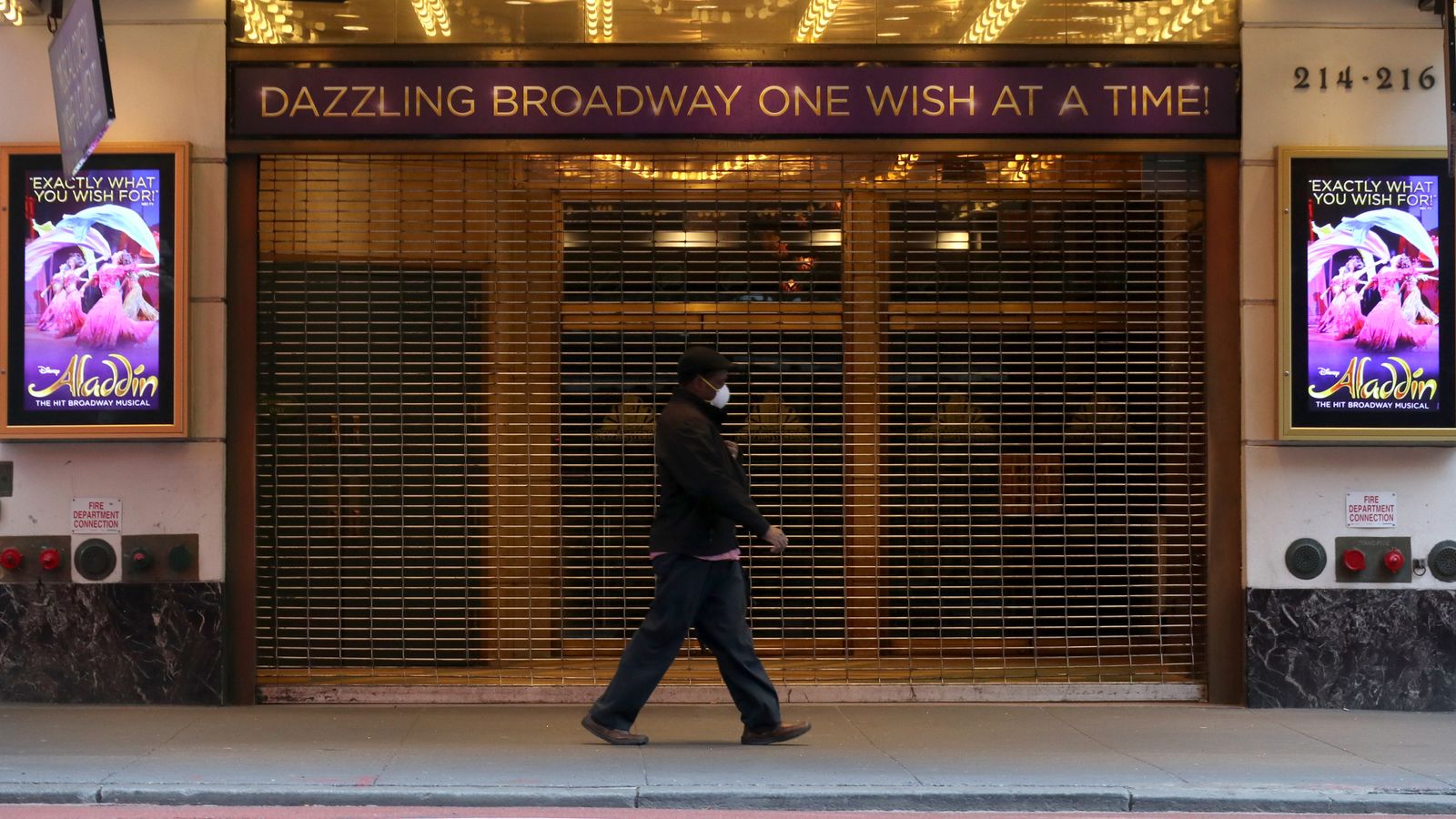The coronavirus pandemic is keeping the curtain shut on Broadway through the rest of the year. It is unclear when shows will return back on stage.
The Broadway League announced Monday that all Broadway performances in NYC are on hold for the next six months and beyond due to the pandemic.
The league revealed that the theater owners and producers will refund or exchange tickets previously purchased for shows through January 3rd.
This will be the fourth time Broadway to go dark. It has been shuttered since March 12. The League has periodically extended the suspension, which was initially set until April, then June, then September, and until now January 2021.
About 31 musicals and plays were running when Broadway went dark for the first time, while eight new shows were in preview and another eight were preparing to debut in the spring.

More about Coronavirus
The novel coronavirus was first reported in Wuhan, China, and has infected more than one million people and killed over 234,139 worldwide. It also hit several celebrities and top political figures around the world.
The virus is a new member of the Coronaviruses group, which was never identified in humans. The viruses’ family also includes Middle East Respiratory Syndrome (MERS-CoV) and Severe Acute Respiratory Syndrome (SARS-CoV), which cause illness ranging from the common cold to more severe diseases.
Coronaviruses are zoonotic, meaning they are transmitted between animals and people. Humans and animals such as mammals and birds can be affected by the disease.
The name coronavirus is derived from the Latin corona, meaning “crown” or “halo”.
On February 11, the World Health Organization (WHO) announced the official name for the disease caused by the new coronavirus is Covid-19, taken from the words “corona”, “virus” and “disease”.
In December 2019, an outbreak was reported in Wuhan, China. On 31 December 2019, the outbreak was traced to a novel strain of coronavirus, which was given the interim name 2019-nCoV by the World Health Organization (WHO), it was later renamed SARS-CoV-2 by the International Committee on Taxonomy of Viruses.
On March 11, the World Health Organization (WHO) declared coronavirus a global pandemic as the new virus has rapidly spread to more than 800,000 people from Asia to the Middle East, Europe, and the United States.
However, it announced the novel COVID-19 is still “controllable”.
“We are very concerned to achieve the alarming levels of the outbreak and its severity, as well as the alarming levels of inaction,” WHO Director-General Tedros Adhanom Ghebreyesus said at a press conference in Geneva.
“Now, COVID-19 can be categorized as a pandemic… we have never seen a pandemic spread due to the coronavirus,” Adhanom added.
“Describing the situation as a pandemic does not change the assessment of the threat posed by the Coronavirus,” the WHO director-general stressed.

Transmission of viruses between humans happens when someone comes into contact with an infected person’s secretions, such as droplets in a cough.
Coronavirus can also be transmitted by coming into contact with something an infected person has touched and then touching your mouth, nose, or eyes.
It is known that older people appear to be more vulnerable to the effects of the emerging virus.
The virus caused complete paralysis in all activities and events with large gatherings worldwide due to concerns over the spread of the virus.
The global pandemic, like everyone around the globe, had infected many famous personalities who have gone public with their results, such as Canadian Prime Minister Justin Trudeau’s wife Sophie, and the Universal Music chairman and CEO Lucian Graingem who was admitted into the hospital to be treated for the virus.
People across the globe partake in self-isolation for 14 days as an effective precautionary measure to protect those around them and themselves from contracting COVID-19.












